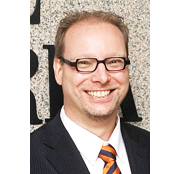Paik’s legacy in dispute

Family of late video artist opposes memorial project
An effort to commemorate Korean-born video artist Paik Nam-june and his legacy is being objected to by his family and executor.
The Ministry of Culture, Sports and Tourism, KBS and the Seoul Metropolitan Office of Education established a committee for a Paik Nam June memorial project in February and set up an office at Jeongdok Library in central Seoul.
“We want to revive Paik’s legacy including his creativity and genius. We first aimed to restore Paik’s birthplace in Changsin-dong, but the plan was scrapped due to restrictions. Instead, we will make a place to cherish the memory of Paik near this library,” an official of the committee said.
Paik’s family, however, disagree. His nephew Ken Paik-Hakuta, the executor of the Nam June Paik estate, issued a press release Wednesday, saying that they had not given permission for the project being pushed by the ministry, the broadcasting station and the education office.
The Paik Nam June memorial committee, led by “gayageum” master Hwang Byung-ki, held a sign hanging ceremony on April 25, which was behind the estate issuing the press release.
Paik-Hakuta claimed that Paikstudios, the agency in Korea taking care of Paik’s rights, did not give permission to the project, though it had spoken with the committee several times by phone.
“There are many people who have been in the media and names have been mentioned in the Korean press but there has been no such approval from us,” Paik-Hakuta said in a statement. “This is an insult to Paik’s artistic legacy by greedy commercial interests and politicians, and this type of illegal behavior makes Paik Nam June, and Korea, look bad in the world of international art.”
The committee has argued that the estate’s copyrights only cover Paik’s artwork and its project is different since it will not feature any of them. Their major project will by educating youngsters to be as creative as Paik.
Hong Seung-kee, the legal advisor to the committee, said they it did not violate any laws in promoting Paik’s memorial programs. “It won’t display Paik’s works or earn money from them. This is a nonprofit project and copyrights are not valid in such cases,” Hong said.
This is not the first time the estate has claimed copyright over Paik-related events. In April 2011, the University of Cincinnati hosted the Paik Conservation Symposium and the estate tried to stop it as Paik-Hakuta was not contacted or informed about.
Culture Minister Choe Kwang-shik agreed with the project, but spoke cautiously about copyright issues.
“Paik is the pioneer of K-art or hallyu in fine art. I think we need a memorial hall for Paik in Korea, but it would be a true memorial for Paik when we settle copyright issues with the family,” Choe said in an interview with The Korea Times.
The memorial committee wants to continue with the project. “We contacted Paikstudios several times, but they didn’t reply to us. We want to make a proper memorial hall with their help.”
Experts worry about the permanence of the project. Art critic Chung Joon-mo said there are many people who want to exploit the name of Paik. “I am not referring to a certain project, but how long could the commemoration project last without experts,” Chung said. “The more important thing is establishing an archive of Paik’s works and information and supporting related art history research.” <Korea Times/Kwon Mee-yoo>



